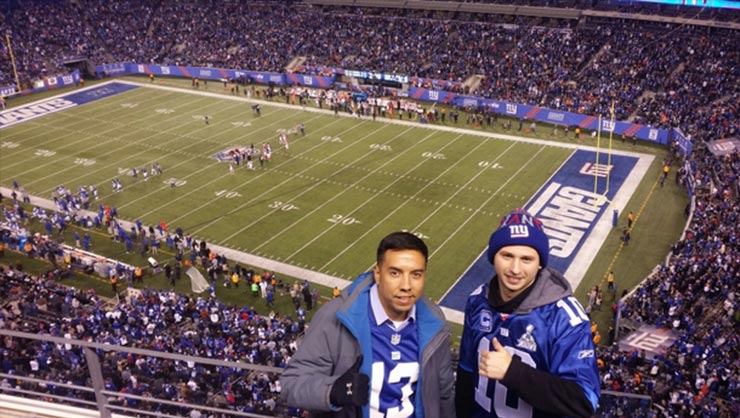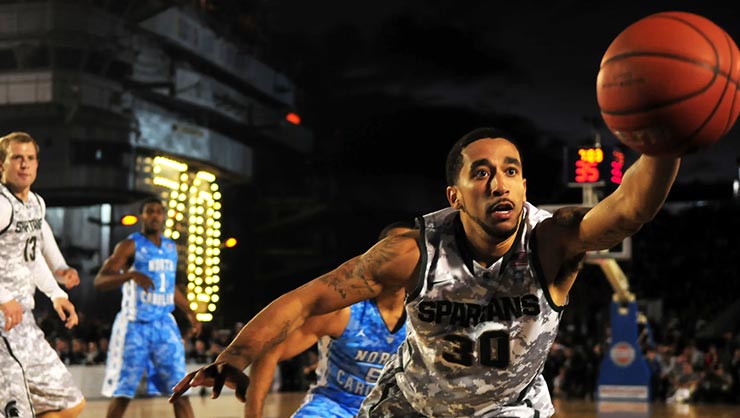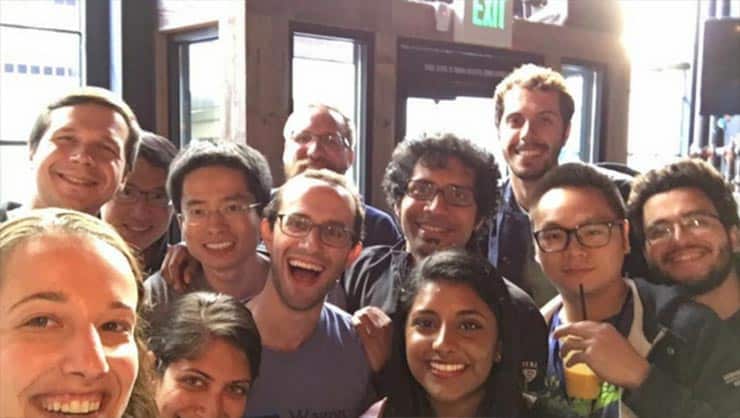Updated: 27 July 2020
Living in a new country is going to be fun and exciting, but it’s also going to be an adjustment. You might find yourself asking “What does this phrase mean?” or “Why do Americans do that?” in response to some American habits. We’ll share some of the most common things to keep in mind about Americans and U.S. culture before you arrive.

Image courtesy of Sharon Malloy
Think BIG
Whereas other countries emphasize being practical, compact and concise, Americans often prefer large and luxurious. Don’t be surprised by the enormous trucks and massive SUVs sprawling across parking lots. Americans like their space. To them, large can be practical. Thinking big also applies to American food: most restaurants serve very large portions. It’s not uncommon for someone to order a sizable meal and then take the remainder home as leftovers.

Image courtesy of Pexels
Some restaurant entrees are also meant to be shared. If you’re going out to eat and aren’t sure of the portion size, it’s okay to ask your server what they recommend! There is a counter-movement against the “big is better” mentality, however. Many people, especially young urbanites, are buying eco-friendly cars, shopping for local and healthy foods, and trying to lower their consumption and waste as much as possible.
“To-go” concept – Eating on the run
Most Americans are always on the go. It seems they are often running from one appointment to the next, going to and from work, picking up kids, running errands, and going to business meetings and social outings. Because Americans are regularly on the move, there is often not enough time to have a formal, sit-down meal. A common expression you’ll hear is, “24 hours in a day is not enough!”
You may be surprised to see Americans walking around with coffee mugs, beverages, or food packaged in to-go containers. You’ll probably see people eating a slice of pizza on the street (especially in New York City) or drinking a cappuccino while in line at the bank. You’ll notice that drive-thru windows are common at fast-food restaurants around the country; according to DoSomething.org, 20% of all American meals are eaten in the car. For many Americans, there isn’t enough time to sit down in a café and enjoy a cup of coffee, or relax for a few minutes and eat a snack, so you’ll often hear them order their food and drinks “to go.”
Going out to eat or ordering take-out
Americans eat out not only in the interest of time and convenience, but because it’s fun! The U.S. is a melting pot of different cultures, bringing along a variety of tasty food options. Dining out allows Americans to explore new cuisines and food varieties. Even in small American towns, you’re likely to find pizza, Chinese, Japanese, or Mexican food. In larger cities, you’ll find restaurants devoted to Ethiopian, Brazilian, or Afghani cuisine. It’s important to keep in mind that people’s habits always vary. Some people rarely eat out, but it is not uncommon for Americans to eat out several times a week. In addition to bringing lunch from home, many Americans get take-out for lunch or go out to lunch everyday.

Image courtesy of Lucas Vandeneede
Sports
Many Americans love and follow sports, the most popular being football, baseball and basketball. You’ll discover that a major difference between your home country and the USA is that the following of soccer is much smaller in the U.S. than in other countries. Sports can be a huge uniting and dividing factor among Americans. During football and basketball season, you might see your coworkers getting into spirited debates about whose team is better. Football is fun to watch but can be pretty confusing to follow, but you can ask your American colleagues to help you out. You might even understand why over 100 million Americans watched the 2017 Super Bowl!
Competition
Like many other cultures, Americans thrive on competition. From a young age, children are encouraged to work hard and try their best to succeed at a task, particularly in academics, sports, and other hobbies. Universities tend to be very competitive, so parents prepare their kids early for the admissions process. Some high schools and even pre-schools have competitive admission, and even Girl Scouts vie to sell the most cookies during fundraising drives to earn great prizes. You will see that many Americans are ambitious as well. They are proactive and if they want to accomplish something, they go for it. They don’t tend to sit back and wait for others to catch up.

Image courtesy of Pexels
Political Correctness (or being “P.C.”)
Since the U.S. is so diverse, there is a general practice of always respecting other cultures and people’s differences, especially when communicating and expressing your ideas. An underlying rule is to not to use words or expressions that could be interpreted as offensive, regardless of whose company you are in. Your co-workers may be of different ages, genders, and races, and political correctness is a way to help everybody feel comfortable with the group dynamic.
Small Talk
A lot of Americans participate in what is called small talk, where you make conversation with strangers or acquaintances about non-controversial topics, such as the weather, sports, or popular television shows. While waiting at a bus stop, in line at a store, or in an elevator, don’t be startled if a stranger says something to you like, “Did you watch the Super Bowl last night? What a game!” They might also make a joke about the long line you’re both in, or comment on the current situation. Small talk is supposed to be harmless, so it’s not okay if a stranger says something that makes you uncomfortable.
Independence
The idea of being self-sufficient is valued highly in the U.S. Many American kids and teenagers leave home for extended periods of time, often for summer camps or travel. Upon graduating secondary school, many Americans choose colleges and universities outside of and often far from their hometowns. College students generally live on their own or in residence halls with other students while at school for two to four years and many move away from their childhood homes after graduation. After 17 or 18 years, most Americans no longer live at home with their families. They also do their own shopping, laundry, cooking, and pursue careers or studies on their own.
The idea of being self-sufficient and being on your own is valued highly in the U.S.
Diversity
The U.S. is often called a melting pot because its people come from many different backgrounds and cultures, and there are such a wide variety of beliefs, values, and traditions. There is no such thing as the typical American – that’s part of what makes it such an interesting place! Customs vary from region to region and family to family. If you’re invited to a cookout in California, that might mean grilling on the beach; in Texas, it could be a barbecue competition in a park, or a block party in the middle of the street in New York City. So get out and experience whatever traditions your host community has to offer!

Image courtesy of Carlos Caratori
Speaking Up
In general and in the workplace, Americans are known for speaking up and generally going after what they want. Particularly in the workplace, you may be surprised to see that Americans are not afraid to voice their ideas. While your supervisor is your superior and should always be treated with respect, it’s okay not to hold back and ask a question if you have one. If you need clarification on a project, your employer would prefer that you let them know. While there is certainly a difference between speaking up and being subversive or rude, it’s okay to say something!
This is just a basic overview of American culture! If you found these facts interesting, you can check out a Career Training USA participant’s account of culture in the USA. Of course, reading won’t immerse you in culture. If you really want to experience the USA, consider applying to an American internship to see the country while simultaneously furthering your career!




